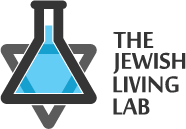Philosophy
Open. Inclusive. Accessible. Judaism.
Jewish learning to develop Jewish lives, however that is defined by the individual.
Judaism by default is a creative tradition, and the beauty is that that we get to define it ourselves, whether as individuals or as part of a community. At the Jewish Living Lab we are committed to providing you with the wisdom and tools to practice creative Judaism, as well as a growing community to nurture that growth.
We believe in Judaisms – not one Judaism.
At the Jewish Living Lab, we do not believe there is one way to be a Jew. Whatever you define as your Judaism is already amazing, and we just want to help you identify it, understand it, and amplify it. Jewish Living Lab educators are committed to presenting an array of Jewish knowledge from across all denominations and points of view.
Your own best Judaism. Your own best you.
Discover and define your own Jewish identity in a way that enhances your life, using texts and ideas both ancient and very modern. The Jewish Living Lab is committed to providing the tools needed for creativity and growth in Jewish Life, both of which are vital to a robust Jewish identity. The Jewish Living Lab isn’t trying to make you a better Orthodox Jew, or a better Reform Jew. The idea is to make you more you: the best version of yourself.
Creating value in Adult Jewish Education
The nature of adult Jewish education today is such that classes are often an ad hoc collection of what the Rabbi has taught before and whatever visiting scholars the Education Director is able to find. The Jewish Living Lab seeks to improve on that model by taking the existing strengths of the available teachers and shaping them into a curriculum that takes the learner on a directed path of learning rather than an unconnected series of lectures designed to provide information to those attending.
We believe that a comprehensive adult education curriculum is essential to any community and that learning does not end after college.
We believe that every community should have a variety of classes that include biblical and rabbinic text-based courses as well as classes in Jewish history, thought and culture.
